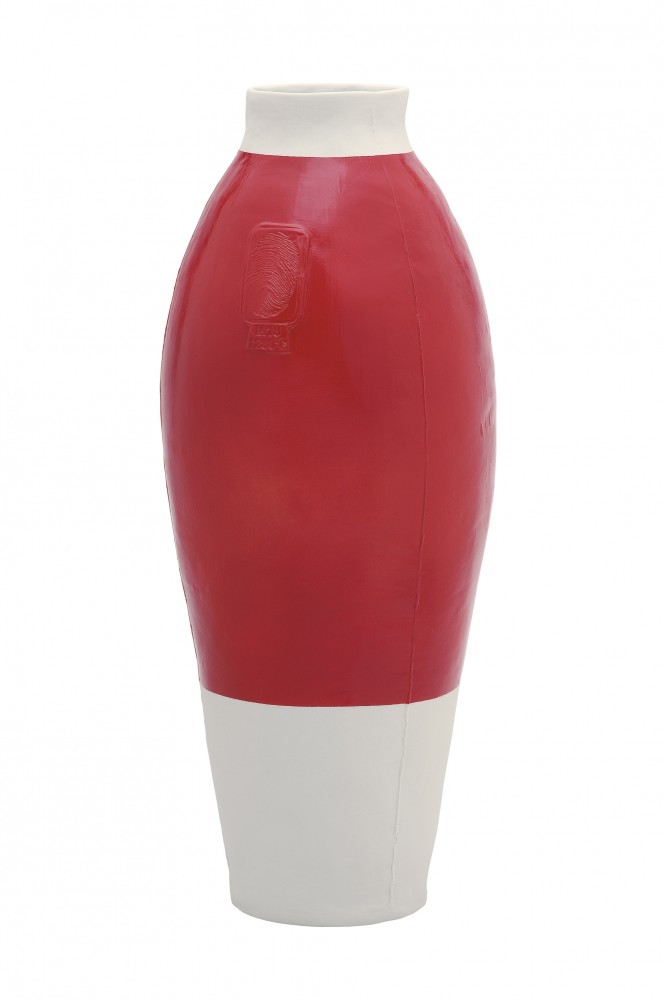
t.e. 174
red white vaseTogether with the Big White Pot, the Red White Vase has become a modern classic. Both are the end result of Hella Jongerius exploration of medieval pots. Hella Jongerius cast these two vessels from the moulds of restored medieval pots. The rough casting seams, along with the potter's traditional thumbprint, give the impression of antique vessels while the strong, solid forms are a clear indications of modern industry.
Ø 16 x 41 cm